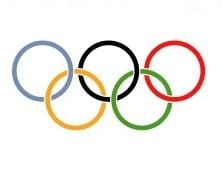The manager of the Vancouver gay bookstore that battled Canada Customs over freedom of expression for two decades says Canadians need to be leery of Vancouver 2010 Winter Olympics organizers’ attempts to control free speech.
Games organizers say protests will be allowed in police-controlled “safe assembly areas” within sight of venues, the media and spectators.
But, says Janine Fuller, manager of Little Sister’s bookstore, any attempt to deny access to rights and free expression is a cause for concern.
“Whenever things are under the guise of protection, we should always be concerned,” Fuller says.
“When they say they’re committed to freedom of expression, we don’t believe them,” says BC Civil Liberties Association (BCCLA) executive director David Eby. “The protesters believe they have the right to protest on public space wherever they please.”
Eby calls the controlled areas “protest pens.”
He predicts clashes between demonstrators and police.
Olympic organizers said last week that a balance has been struck between Canadian freedom of expression rights and the protection of Olympic trademarks and costly sponsors’ privileges.
Protestors won’t have to use the zones, organizers say, but the areas will be available to ensure a clear space for protests in the busy areas around venues.
The exact locations and sizes of the zones will be announced closer to Games time.
Eby doesn’t buy the organizers’ balance argument
“It’s all to accommodate the [International Olympic Committee] and the risk that they will feel embarrassed,” Eby says.
BCCLA board member Michael Byers, a University of British Columbia (UBC) professor in global politics, says he’s still waiting for assurance from Games organizers that traditional city protest sites such as the Vancouver art gallery will remain accessible.
The decision to create Vancouver protest zones near the Olympic venues is in stark contrast to the 2008 Beijing Summer Games, where officially sanctioned protest areas were miles from venues.
Beijing protesters had to apply for permission to hold demonstrations. Applications had to detail the protest subject and list those involved.
Chinese officials said almost 200 applications were received but most were withdrawn or rejected.
Protests near Beijing venues were quickly quelled, and activists detained and deported. The Vancouver Games security is being coordinated by the Royal Canadian Mounted Police’s Integrated Security Unit.
Vancouver passed bylaws recently establishing bubble zones around Game venues to prevent marketing which could violate Olympic sponsorship contracts.
One bylaw had gone as far as to establish searches at the city’s Central Library during Olympic-related events. Plans to stage events at the library were soon dropped after intense public criticism.
The bylaws also ban newspaper boxes such as Xtra West’s within the zones.
Critics call the bylaws a violation of Canadian civil rights.
The bylaws will be enforced by Games volunteers, private security and city police.
Eby says civil rights groups will be training people to shadow those volunteers and security to ensure Canadian laws are not violated.
Canada has a history of violent responses to controlled protest areas. At the 1997 Asia-Pacific Economic Cooperation summit in Vancouver, UBC students were arrested for posting signs, and police pepper-sprayed and strip-searched rioting demonstrators.
Legal experts complained that serious violations of the Canadian Constitution took place.
In 2001, areas of Quebec City were fenced off for the Summit of the Americas attended by 34 heads of state from North and South America.
Hundreds were arrested after police used rubber bullets and tear gas on demonstrators who had been corralled into protest zones.
Anti-globalization activists called the actions of Quebec City police an attempt to suppress dissent.

 Why you can trust Xtra
Why you can trust Xtra


